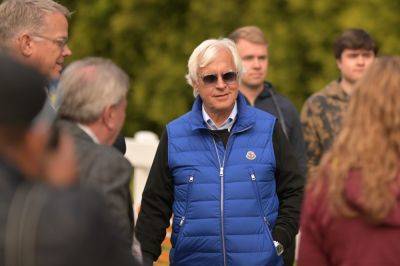NHL enforcers die 10 years younger than their fellow players, study finds
A study of former National Hockey League players shows that enforcers who spent a lot of time dropping their gloves or in the penalty box lived significantly shorter lives than their peers.
Researchers at Columbia University in New York reached the conclusion after analyzing data from 6,039 NHL players from 1967 to last spring.
The study, published Wednesday in the JAMA Network Open, found that enforcers died on average a decade younger than comparable peers who were drafted at the same rank, were of similar height and weight and played the same position.
The differences in causes of death between the enforcers and their fellow players was striking. Two neurodegenerative disorder deaths, two drug overdoses, three suicides and four vehicular crashes were attributed to the 331 players identified as enforcer-fighters, compared to just one car crash death among the age-matched control group.
Dr. Dave Ellemberg, a professor at Universite de Montreal and a specialist in sports medicine and concussions, said in an interview that the new study strengthens the case for ending fighting in hockey.
"Will this study be the straw that breaks the camel's back? I hope so, but long before this study we had data that argued clearly in favour of abolishing fighting," said Ellemberg, who was not one of the study's authors.
WATCH | NHL commissioner denies linking CTE to head trauma in hockey:
Ellemberg said because of its sample size, the study allows conclusions to be drawn on the state of the brains of athletes that until now were only accessible with an autopsy.
"On a very large scale, we see that there are athletes who present the characteristics of chronic traumatic encephalopathy [CTE] without us having to do autopsies," he said.
C








